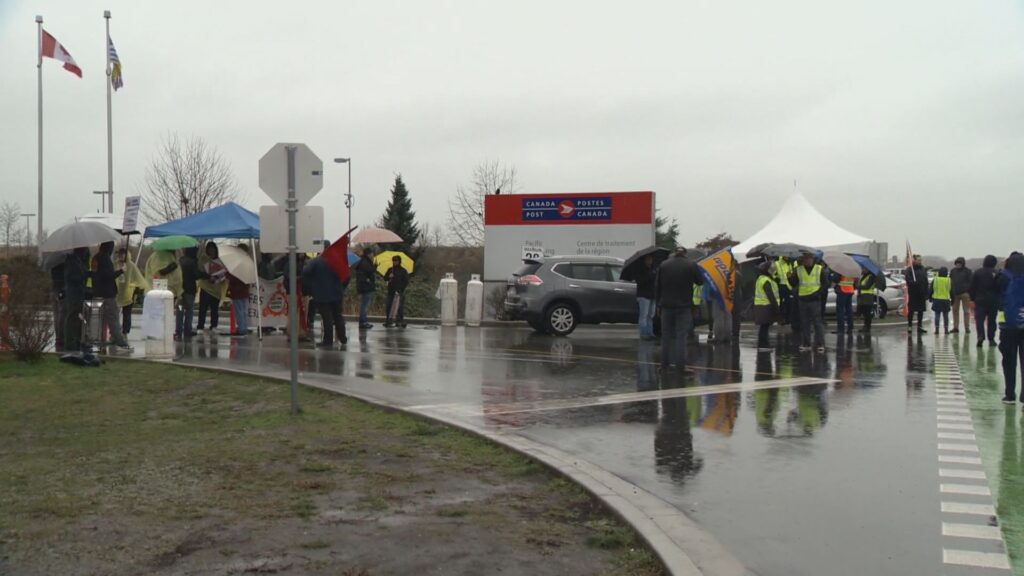
In December 2024, Canada Post workers across Canada were ordered to return to work by the federal government. Despite this, picket lines remain active at several key locations in Metro Vancouver, including the Pacific Processing Centre in Richmond and the International Facility in Burnaby. The ongoing strike and the persistence of picket lines have become a significant point of contention in labor negotiations, drawing attention to broader issues surrounding workers’ rights, government intervention, and the future of labor relations in Canada.
Overview of the Canada Post Strike
The strike action, which had been ongoing for a month, was interrupted by the intervention of the federal government. On December 16, 2024, the labor minister invoked Section 107, a controversial legal measure that forces workers back to their posts. This move was intended to mitigate the disruptions to Canada Post’s services during the busy holiday season. Despite the government’s intervention, not all Canada Post workers have complied. In Vancouver, workers at the Pacific Processing Centre and the International Facility continue to hold their ground, citing unresolved issues that remain at the heart of the strike.
Key Locations Affected by the Strike
The two locations in Metro Vancouver that remain at the center of the dispute are:
- Pacific Processing Centre (Richmond, BC): A crucial hub for sorting and processing mail, its continued disruption has had a ripple effect on the efficiency of postal services in the region.
- International Facility (Burnaby, BC): Handling international mail and packages, this facility plays an essential role in managing cross-border communications and logistics.
These locations remain vital to the region’s postal operations, and their ongoing disruption has raised significant concerns about the future of postal services.
The Role of the Canadian Union of Postal Workers (CUPW)
The Canadian Union of Postal Workers (CUPW), representing workers at these facilities, has been vocal in its opposition to the government’s use of Section 107. Union president Andu Parmar, of Vancouver Local 846, has expressed frustration with the government’s intervention. CUPW members, along with supporters from other labor organizations, believe the move undermines workers’ rights to free collective bargaining.
Workers’ Rights and Government Intervention
The federal government’s intervention in the dispute has become a focal point for labor activists and union leaders. By invoking Section 107, the government has effectively curtailed the workers’ ability to strike, a right that is central to labor movements globally. Rob Ashton, president of the International Longshore and Warehouse Union (ILWU), spoke out against this action, calling it a tactic that emboldens employers while stripping workers of their bargaining power.
Community and Worker Solidarity
The strike has garnered significant support from various community groups, including citizens who have rallied alongside workers to protest what they see as an unjust federal imposition. Protestors, including union leaders and other concerned citizens, have been blocking access to Canada Post facilities to prevent management and workers from entering the facilities. This solidarity is seen as a way to exert pressure on the government to address the root causes of the conflict rather than simply imposing a back-to-work order.
The Role of Federal Arbitration
The federal government has appointed an industrial inquiry commission to investigate the issues at the heart of the dispute and provide recommendations by May 15, 2025. This commission is expected to play a crucial role in determining the long-term resolution of the strike. However, for now, the resolution seems far from clear, as both sides remain entrenched in their positions.
Economic Impact of the Strike
The strike has caused significant disruptions, particularly in the lead-up to the holiday season. Canada Post is responsible for delivering a large portion of the country’s mail and parcels, including essential packages, holiday gifts, and cards. As a result, Canadians have been facing delays in receiving important mail items, and businesses have been impacted by disruptions to their shipping operations.
Delays in Holiday Shipping
One of the most immediate consequences of the strike has been delays in the delivery of holiday parcels. Canada Post workers at the affected facilities process a considerable portion of holiday mail, and the continued disruption has led to significant backlogs. Many Canadians have expressed frustration over the possibility of not receiving their holiday cards and gifts on time, which has added stress to an already challenging holiday season.
The Broader Context: Labor Relations in Canada
This strike, and the government’s intervention, highlights broader concerns about labor relations in Canada. Over the years, the use of back-to-work legislation has been a contentious issue, with many labor advocates arguing that it weakens the bargaining power of unions. Critics argue that such interventions create an imbalance between workers and employers, favoring corporate interests at the expense of employee rights.
The Future of Labor Negotiations
With the appointment of the industrial inquiry commission, there is hope that a more long-term solution to the ongoing dispute may emerge. However, many remain skeptical about the effectiveness of the commission’s recommendations, especially in light of the government’s heavy-handed approach. As labor disputes continue to make headlines, the question remains whether Canada will see further tensions between the government, unions, and corporate interests in the years ahead.
Conclusion
The ongoing Canada Post strike in Metro Vancouver remains a critical issue for both workers and the broader community. The federal government’s use of Section 107 has raised serious questions about the future of labor relations in Canada, particularly regarding workers’ rights to free collective bargaining. As the strike continues to impact essential postal services, it is clear that the dispute is far from over. With the appointment of an industrial inquiry commission, there may be hope for resolution, but for now, the situation remains tense, and the future of Canada Post’s workforce hangs in the balance.
